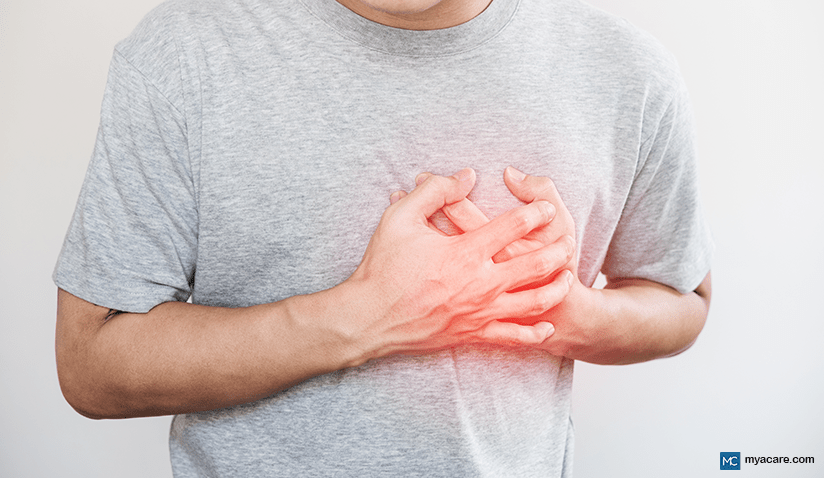HEALTH FAQ: TOP GOOGLED HEALTH QUESTIONS OF 2019

These days, nearly everyone carries a miniature virtual encyclopedia in their pockets that holds most of the collective information humanity has garnered over the last couple of centuries. With the touch of a few buttons, our cellphones can give us access to almost any information we need within an instant thanks to the big tech giant, Google.
The problem we now face is the opposite to that of the past with similar consequences - instead of being ignorant and answerless, people often find themselves lost in a digital ocean of contradictory facts, battling to discern what is true from what isn't. It seems the new ignorance is knowing too much to the point of confusion rather than not knowing at all!
Naturally, this applies to health as well. Questions that used to be unanswerable without a trip to the doctor can now be answered almost instantly in the age of information in which we find ourselves. Unfortunately, 'Dr. Google' has unintentionally created a new breed of hypochondriac ('cyberchondriacs’, if you will). Just remember that not everything you read online is true or applicable!
Last year in December 2019, Google released the the most googled health questions of the year. In an attempt to dispel some of the mystery, we have listed some of these questions and a few others we are commonly asked, alongside carefully researched answers.
1. How to Lower Blood Pressure?
Not surprisingly the top of the charts, high blood pressure is often referred to as the "silent killer" as most people who have it don't know that they do. However, high blood pressure is entirely preventable and can even be partially treated by maintaining a healthy lifestyle.
According to Harvard Health , the following activities will help to avoid unhealthy blood pressure:
- Eating a healthy diet with an emphasis on whole fruits, vegetables, nuts, seeds and non-hydrogenated fats
- Restricting salt, sugar, caffeine and alcohol intake
- Managing stress
- Not smoking
- Keeping hydrated
- Getting 7-9hours sleep each night
- Exercising daily
Another point to make here is that high blood pressure may be a result of clogged or stiff arteries. Blood thinning medications may provide temporary relief but do not actually work in the long run to help those with high blood pressure. Without making the above lifestyle changes, individuals with high blood pressure are at a very high risk of developing further complications such as heart or kidney disease.
Some natural foods that have shown promising results in clinical trials for maintaining healthy blood pressure levels include celery, green tea (and many other herbal teas) and 100% pure pomegranate juice. Incorporating these foods in your diet could be an easy first step to leading a healthier lifestyle!
2. What is Keto?
Keto is the shortened name given to the ketogenic diet; a type of diet that is low in carbs, high in fats and on the moderate to high side when it comes to proteins. The aim of the diet is to switch the body's metabolism from relying on glucose (carbs) to ketone bodies, a fuel produced by the liver when stored fat is burned. It is theorized that primates, humans and other mammals have adapted this way to survive periods of time when food is scarce, using ketones made from their stored fat reserves until they can find a decent meal.
Healthcare practitioners usually prescribe the diet to children with epilepsy, as it has been proven to reduce the frequency of seizures. However, in recent years it has been marketed as a weight loss diet due to the way it induces fat burning.
Unfortunately, while the keto diet does indeed burn fat, it is a very extreme diet that can cause multiple nutritional deficiencies as well as liver and kidney issues. A lack of fiber combined with a lot of fat can also cause irregular stools too.
The diet is also associated with higher "bad" LDL cholesterol - the type of cholesterol that worsens heart disease. Not to mention, too many ketones in the bloodstream can cause a state known as keto-acidosis, which dramatically lowers blood glucose levels and typically places the person in a type of diabetic coma that can even be fatal if not treated in time.
In spite of the risks, there are a few conditions for which a keto diet is appropriate. If you want to try the keto diet to lose weight or any other reason, it is very important that you consult with a registered nutritionist or dietician first.
3. What Causes Hiccups and How do I Get Rid of Them
Hiccups are typically caused by irritation to the diaphragm, which can in turn be related to the vagus or phrenic nerves. When these nerves are firing due to irritation, they set off a reflex arc that produces hiccups.
Most of the "cures" described for common hiccups under question 3 revolve around creating an internal rise in abdominal pressure that interrupts the reflex. Irritations to the diaphragm could include :
- Swallowing too fast
- Drinking carbonated beverages or alcohol
- Too much stress or excitement
- Sudden changes in temperature
In the case of persistent hiccups, the cause of irritation could be something more severe such as nerve damage, viral infection of the nerves (e.g. herpes simplex virus), a tumor, cysts, goiters, gastroesophageal reflux, a sore or swollen throat, etc.
The truth is: there is no known cure for hiccups and it is technically not a medical concern unless you have been hiccuping for more than 2 days (48hours). The classic ways to get rid of ordinary hiccups include drinking cold water, holding one's breath, gargling ice water or breathing slowly in and out of a paper bag.
In a short and sweet scientific paper titled "Miracle Hiccough Cure Gets the Attention It Deserves," two doctors describe a cure for common hiccups in which the person covers up both of their ears (do not stick your fingers in your ears, just press them firmly shut) and then slowly drinks an entire glass of water through a straw without pausing.
For more severe hiccups that last longer than 48hours or that frequently return (aka intractable hiccups), seek the help of a healthcare practitioner immediately. The success of treating intractable hiccups relies on how well the cause has been identified (see more under question 5) and a remedy could range from sedative drugs to surgery. Alternative methods of treating intractable hiccups also include acupuncture and hypnotherapy.
4. How Long Does the Flu Last?
A shrewd doctor once said, "a flu will last 7 days with medication and a week without!"
This is absolutely correct - a flu typically lasts for 3-7 days, no matter what you do to treat it. The reason is that all influenza is caused by a virus for which no anti-biotic or medication truly works; only immune support and good, old bed-rest will do!
Complications as a result of the flu, such as bronchitis, can last a few days to several weeks longer, depending on the state of your immune system. In some cases, the complications can be life-threatening, especially without medical assistance.
5. What Causes Kidney Stones?
Kidney stones are created when salts, minerals and other chemical compounds become concentrated enough to crystalize, forming kidney stones. According to Harvard Health , most kidney stones form due to combo's of calcium with either oxalate (found in raw cruciferous vegetables, but not if cooked for 10+ mins), phosphorus or uric acid (a protein by-product).
There are a number of things that can give rise to kidney stone formation:
- Not drinking enough water each day
- Too little or too much dietary calcium with too many oxalates
- Excessive sodium, phosphates (soft drinks, preservatives), sugar or animal protein consumption
- Kidney diseases like polycystic kidney disease or gout
- Abusing medications such as diuretics or calcium-based antacids
- Consuming anything that may impair kidney function
6. What is HPV?
HPV stands for Human Papillomavirus and is a sexually-transmitted infection that causes warts to appear in various parts of the body, depending on the viral strain transmitted (of which there are over 100!) .
There is no known cure and some forms of the virus can be chronic, lifelong or resolve mysteriously on it's own. Many types of HPV are harmless while other types can cause cancer. Mothers can also transmit the disease to their children through pregnancy, giving birth or breast-feeding.
7. How to Lower Cholesterol?
The simple answer is to make healthy lifestyle choices. Drink more water, exercise daily, sleep well, consume an abundant rainbow variety of fibrous fruits and vegetables, avoid consuming too many toxins and restrict your intake of trans-fats. Research has found that many edible plants contain compounds known as "sterols" which help to keep cholesterol levels in check.
8. How Many Calories Should I Eat in a Day?
The amount of calories you need each day depends on how active you are, your age, gender and body type.
If you lead a sedentary lifestyle, you also don't need as many calories. To give a rough idea, a male needs to consume ±2400-3000 calories per day and a female ±1800-2400 per day; with the lower end of these ranges applying to an inactive lifestyle and the higher end applying to an active lifestyle respectively. After 40, men require ±2200-2800 and women ±1800-2200, while after 60 it decreases for men to ±2000-2600 and to ±1600-2000 for women.
Other Commonly Asked Health Questions & Answers
At Mya Care, we often get asked a few questions of our own that we thought we'd like to address in this article:
What is Roemheld Syndrome?
Roemheld Syndrome is a term coined by Dr. Ludwig von Roemheld for patients with digestive problems who acquire secondary cardiac symptoms (e.g. palpitations) in the absence of cardiac conditions or problems.
Although it is seen in up to as many as 14% of people with gastric disorders like GERD (gastro-esophageal reflux), it is not officially recognized by the majority of healthcare physicians as a disease, condition or diagnosis. If a healthcare practitioner knows of Roemheld Syndrome, they will refer to it as a general collection of symptoms caused by other disorders or diseases - once treated, no more cardiac symptoms.
The link between gastric problems and non-heart disease related cardiac symptoms is currently poorly understood. However, it is theorized that the vagus nerve or excessive gas in the digestive tract may play a leading role. If the vagus nerve is compressed for any reason, the heartbeat may become slower which over time can cause heart fatigue and pain. Excessive gas or bloating may also create a backup pressure in the abdominal cavity which displaces the heart temporarily, causing similar symptoms and palpitations.
Some common gastric issues that may cause heart arrhythmia include lactose intolerance or consuming an allergen, which naturally would fall into the category of "Roemheld Syndrome". Multiple diseases and conditions can produce referral symptoms that present in other parts of the body too.
Refer to our article on Roemheld Syndrome for more information.
How Much Does a Hair Transplant Cost?
A hair transplant always depends on how much hair one needs to transplant but can range anywhere between $4000 to $15000 in first-world countries like the UK or US.
In India and other developing countries, you can expect to pay as little as $370-$1500; however, these low prices are offered in local hair clinics where expertise may be lacking. You can still get away with paying far more affordable prices in developing countries for using private facilities where quality is guaranteed. To look for hair transplant clinics worldwide, please use the Mya Care Search Engine.
When to Visit a Neurologist?
Common reasons to see a neurologist include muscle tremors, seizures, severe sleeping problems, motor-control problems, memory loss and more. If these symptoms are presented in combination with chronic pain or chronic fatigue, you likely have a neurological condition.
However, before you diagnose yourself, consult with your doctor about your symptoms. The best time to visit a neurologist is when your doctor thinks you could use some more in depth medical attention in that field after ruling out other causes for your condition.
Conclusion
After reading through the questions and answers to all the top health-related questions people had in 2019, a common theme begins to emerge. It seems that we all just want to know how to be healthy at the end of the day.
Luckily, the advice for the majority of our health concerns is almost always the same: maintain a healthy lifestyle and visit your doctor for checkups regularly. Do not try dangerous fad diets and listen more to the commonsense wisdom of our ancestors. If you exercise often, lead an active lifestyle, drink plenty of water daily, sleep for 7-9hours a night, do not overdo processed foods (nor salt, sugar, trans-fats, alcohol or animal proteins) and rather focus on wholesome fruits and vegetables, you are already on the right track.
Should you suspect that you have an underlying health issue, then you should think about talking to your doctor. For those of you who don't have access to a credible doctor, you can connect with any of the world's leading healthcare providers and practitioners to arrange a consult at the touch of a button with Mya Care.
- [1] https://www.health.harvard.edu/topics/blood-pressure
- [2] https://www.ncbi.nlm.nih.gov/pubmed/31464016
- [3] https://www.ncbi.nlm.nih.gov/pmc/articles/PMC6567086/
- [4] https://www.ncbi.nlm.nih.gov/pmc/articles/PMC5672313/
- [5] https://www.health.harvard.edu/staying-healthy/should-you-try-the-keto-diet
- [6] https://www.mayoclinic.org/diseases-conditions/hiccups/symptoms-causes/syc-20352613
- [7] https://www.ncbi.nlm.nih.gov/pmc/articles/PMC1693610/
- [8] https://www.ncbi.nlm.nih.gov/pmc/articles/PMC3325297/pdf/jnm-18-123.pdf
- [9] https://www.cdc.gov/flu/symptoms/symptoms.htm
- [10] https://www.health.harvard.edu/blog/5-steps-for-preventing-kidney-stones-201310046721
- [11] https://www.kidneyfund.org/kidney-disease/kidney-problems/kidney-stones/
- [12] https://www.mayoclinic.org/diseases-conditions/hpv-infection/symptoms-causes/syc-20351596
- [13] https://www.ncbi.nlm.nih.gov/pubmed/21233620
- [14] https://health.gov/dietaryguidelines/2015/guidelines/appendix-2/
- [15] https://www.ncbi.nlm.nih.gov/pmc/articles/PMC4110594/pdf/WJG-20-9592.pdf
- [16] https://www.webmd.com/skin-problems-and-treatments/hair-loss/men-hair-loss-17/hair-transplants
- [17] https://healthcare.utah.edu/neurosciences/neurology/neurologist.php
Disclaimer: Please note that Mya Care does not provide medical advice, diagnosis, or treatment. The information provided is not intended to replace the care or advice of a qualified health care professional. The views expressed are personal views of the author and do not necessarily reflect the opinion of Mya Care. Always consult your doctor for all diagnoses, treatments, and cures for any diseases or conditions, as well as before changing your health care regimen. Do not reproduce, copy, reformat, publish, distribute, upload, post, transmit, transfer in any manner or sell any of the materials in this blog without prior written permission from myacare.com.



